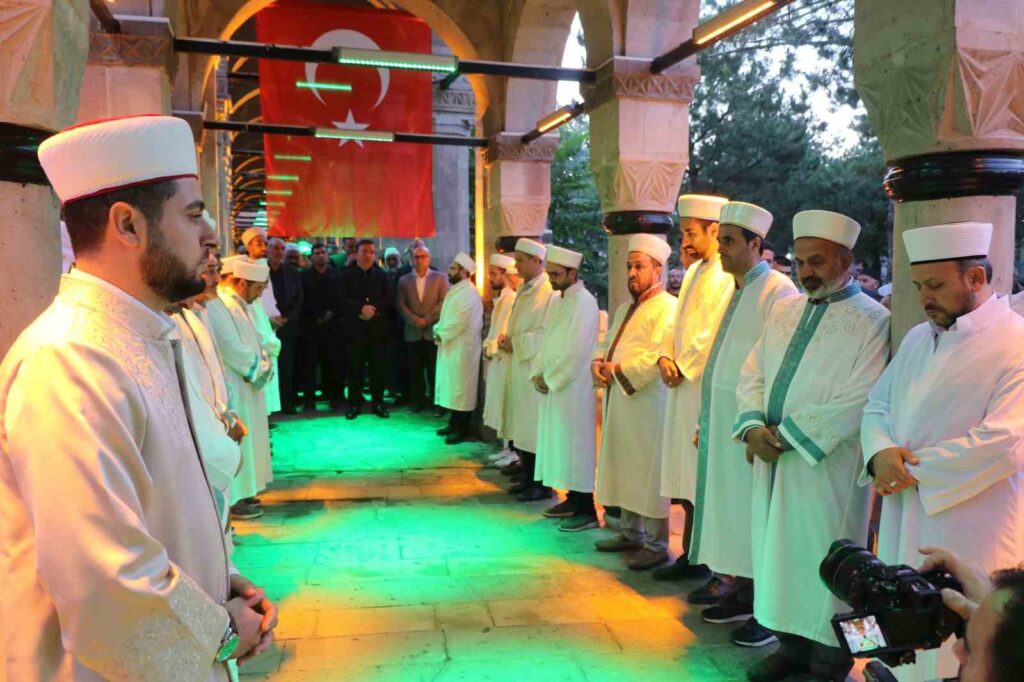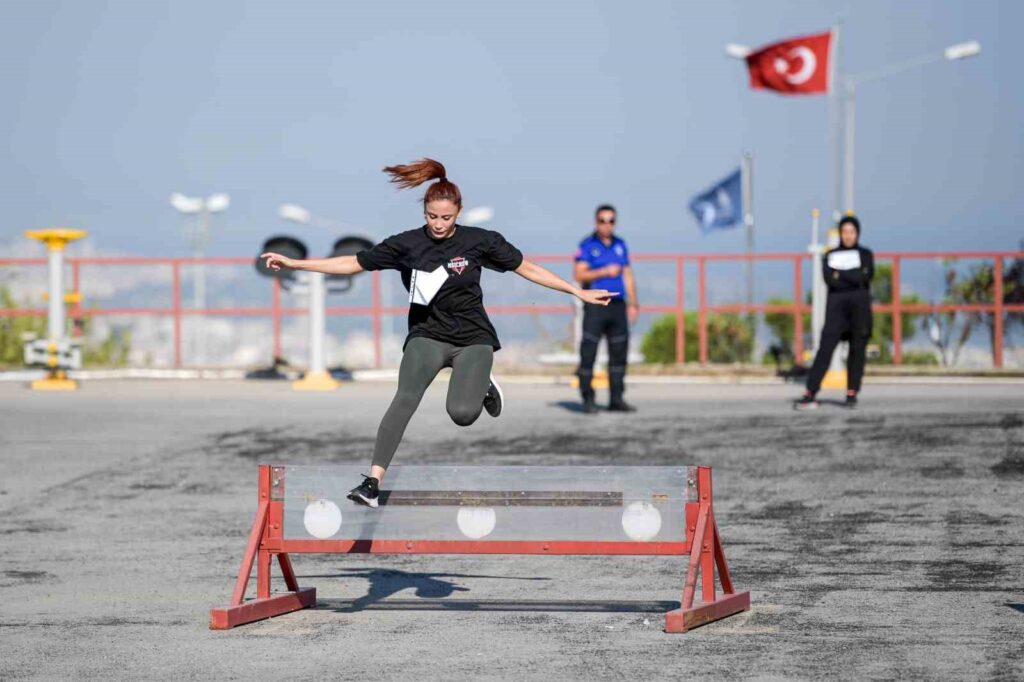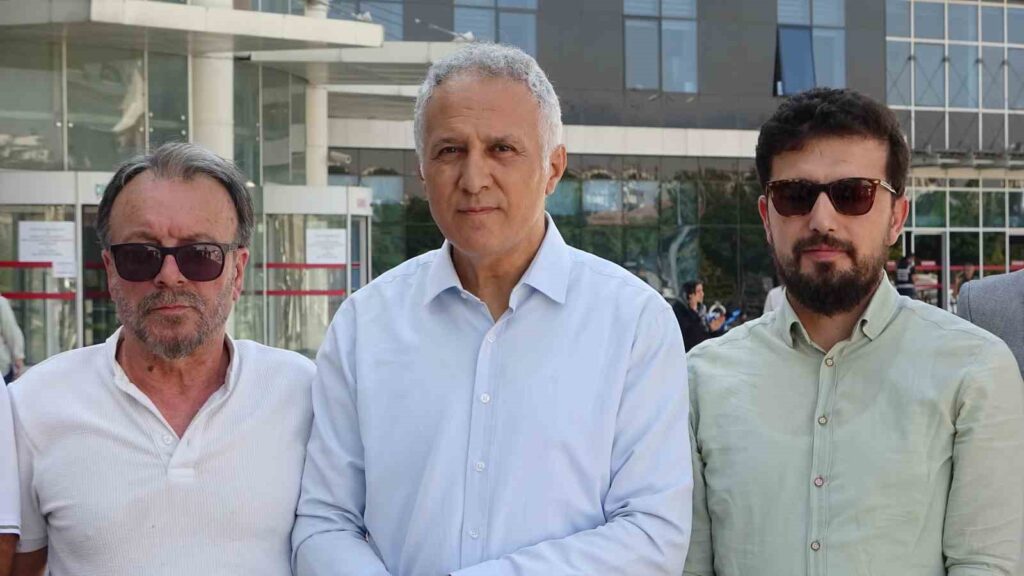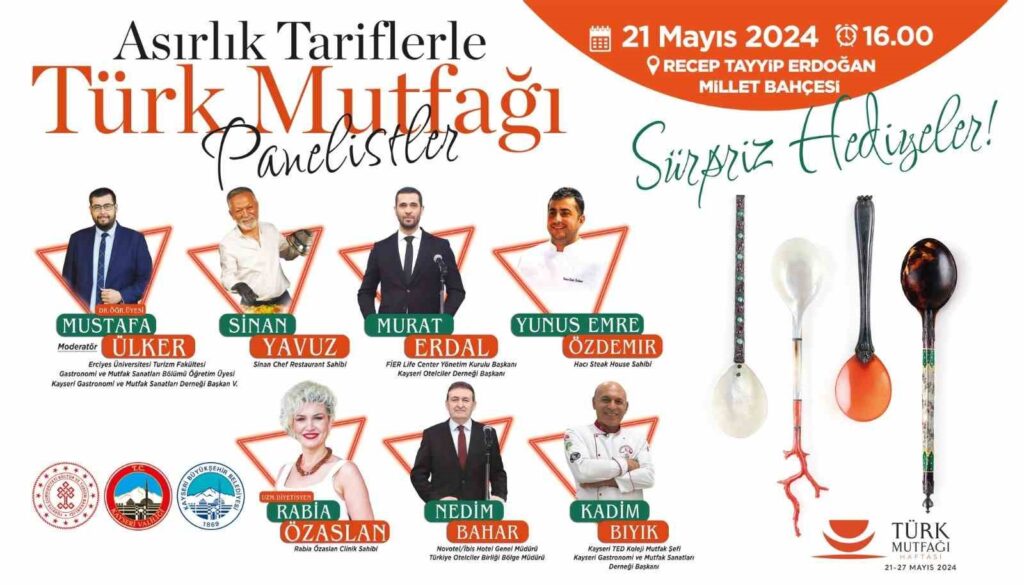The people of Erzincan gathered for the morning prayer on “Terzibaba Day.”
In Erzincan, during the first-ever “Terzibaba Day” held this year, many citizens gathered for the morning prayer. The spiritual figure Terzibaba was commemorated with prayers and recitations from the Quran. This year, for the first time, the Erzincan Governorship organized the spiritual …

This year, the first “Terzibaba Day” was held in Erzincan, where many citizens gathered for the morning prayer. The spiritual figure Terzibaba was commemorated with prayers and recitation of the Quran.
The events organized by the Erzincan Governorship in honor of Terzibaba, one of the spiritual leaders of Erzincan, began with the morning prayer and will continue throughout the day.
During the first event of the day held at the Terzibaba Tomb, the morning prayer was performed, prayers were made, and the Quran was recited.
In the program attended by Erzincan Governor Hamza Aydoğdu, city protocol, and many citizens, after the prayer led by Acting Provincial Mufti Gökhan Badem, the “Terzi Sofrası” (Tailor’s Table) was set up for the people of Erzincan to come together.
The events will continue with the Terzibaba Symposium, where the life and spiritual heritage of Terzibaba will be discussed. Additionally, a Mevlid-i Sharif will be recited, whirling dervish performances will be presented, and a traditional Turkish music concert will be held.
The highlight of the events will be a concert by artist Ahmet Özhan at Erzincan Dörtyol Square. The Erzincan Governorship invited all citizens to this meaningful day, stating that Terzibaba Day is planned to be celebrated traditionally every year.
Erzincan Governor Hamza Aydoğdu stated, “Today Erzincan is experiencing one of its historical days. Anatolia is the land of saints and prophets. Each province is remembered and commemorated with a spiritual figure. We made a decision to declare the last week of August as Terzibaba Day and to commemorate Terzibaba. Today, with an immense crowd from children to the elderly, we will start the day with the morning prayer in front of the Terzibaba Tomb and strive to remember Terzibaba and draw inspiration from his spiritual character throughout the day. We prayed, performed our prayer, and had our breakfast at the Tailor’s Table. We will make this a tradition.”
“Hayyât Vehbî, Erzincan’s Terzi Baba Hz.”
Terzi Baba Hz., one of the great saints raised in Anatolia, was born in Erzincan in the year 1195 AH (1780 CE). His name is Muhammad Vehbi, and he is renowned as “Hayyat Vehbi.” He passed away in 1264 AH (1847 CE) in Erzincan and was buried in the place where his lodge is located.
Today, this place is referred to as “Terzi Baba Cemetery,” and the tomb is situated in the middle of the cemetery. After acquiring fundamental religious knowledge, Terzi Baba began to learn tailoring at the request of his parents in order to become a craftsman. His fame as Terzi Baba comes from this. He did not care about the world at all and had a strong inclination towards the hereafter. While engaging in his profession, he never neglected his worship and made maximum effort to refrain from fulfilling his ego’s desires. He met and became a disciple of Sheikh Abdullah Mekkî Efendi, one of the caliphs of Mevlânâ Hâlid-i Bağdâdî. After this, Terzi Baba’s spiritual stature progressed day by day. He completed his spiritual training and received the caliphate from Abdullah Mekkî Efendi. Their encounter was as follows: Terzi Baba sewed while also remembering Allah the Almighty with his tongue and heart. While sewing in his shop, he would mention the Ism-i Celal (the Supreme Name) every time he inserted and pulled out the needle from the fabric, saying “Allah.” He was a gentle, mild-mannered, and humble person. He did not want anyone to know his condition. He loved the poor very much and openly showed this affection. One day, a wandering poor man came to Erzincan. His coat was very old and so dirty that it could hardly be handled. This man visited the tailors in the city one by one to get his coat repaired. However, the tailors he approached not only refused to mend it but were also hesitant to even touch it. The tailors mockingly said to the poor man, “There is Terzi Baba over there. Take it to him; he will sew it.” The poor man found Terzi Baba and explained his request. Instead of a rejection, he received a warm acceptance from Terzi Baba. Terzi Baba told him, “Leave the coat; God willing, I will have it ready tomorrow.” Terzi Baba took the coat, washed it nicely, dried it, and then sewed it. The next day, he returned the garment to the poor man. He did not take any payment for all this. The poor man was very happy to see his coat cleaned and mended. In that moment, he looked at Terzi Baba and prayed from his heart to meet in the company of those beloved by Almighty Allah. During those days, Mevlana Hallid-i Bağdâdî’s caliph, Abdullah Mekkî Efendi, had first stopped in Erzurum and then headed towards Erzincan. As they approached Erzincan, Abdullah Mekkî Efendi said to his companions, “The place our teacher described to us, God knows this must be it. There is an entrusted person here.” When Abdullah Mekkî Efendi honored Erzincan with his presence, people flocked to visit him. Among those who came was Terzi Baba. When Abdullah Mekkî Efendi saw Terzi Baba for the first time, he stood up, invited him, and offered him a place beside him. He showed Terzi Baba the compliments he never showed to anyone else. “We have a trust from Mevlana Halid Bağdâdî. I see you as worthy of this trust. It will be very beneficial for you. If you accept, I will hand it over to you,” he said. Terzi Baba replied, “You know best, my master. If it is a material benefit, I do not say goodbye to the world.” Upon receiving this response, Abdullah Mekkî Efendi said, “My son, you have found what you seek. The trust I will give you is nothing but a way to free you from the love of the world.” He gazed at Terzi Baba with benevolence and entrusted him with the trust. He educated Terzi Baba in the path of Shah-i Nakşibend Bahaeddin Buhârî and helped him reach perfection. The situation of Terzi Baba quickly spread in the vicinity, and people began to flock to visit him. However, it wasn’t long before troublemakers also began to act. They reported him to the city’s mufti, using the excuse that he was unlettered and made various allegations against him. The mufti examined him on the attributes of the Essence and the Attributes of God. To reveal the truth, Terzi Baba answered the question as follows: “According to the people residing in this city, Allah has seven Attributes of Essence; according to other places, He has eight. The Attributes of Essence in this place are as follows: Knowledge, Hearing, Sight, Will, Life, Speech, and Creation. In this city, there is no attribute of power for Allah. Because the people of this city deny Allah’s Attribute of Power. If the people of this city believed in His Attribute of Power, they would say that Allah is capable of creating the ability to guide people in an unlettered servant.” As soon as he gave this answer, those present became convinced that Terzi Baba was a complete person with knowledge of Ladunni (mystical knowledge) and begged for his forgiveness. They began to show him the necessary hospitality and respect. Among the caliphs raised by Terzi Baba are Hafız Rüştü Efendi, Hacı Mustafa Fehmi, and Leblebici Baba, who hold significant positions. Terzi Baba also has a work titled “Miftâhu’l-Kenz” which contains hymns in the style of Yunus Emre.







